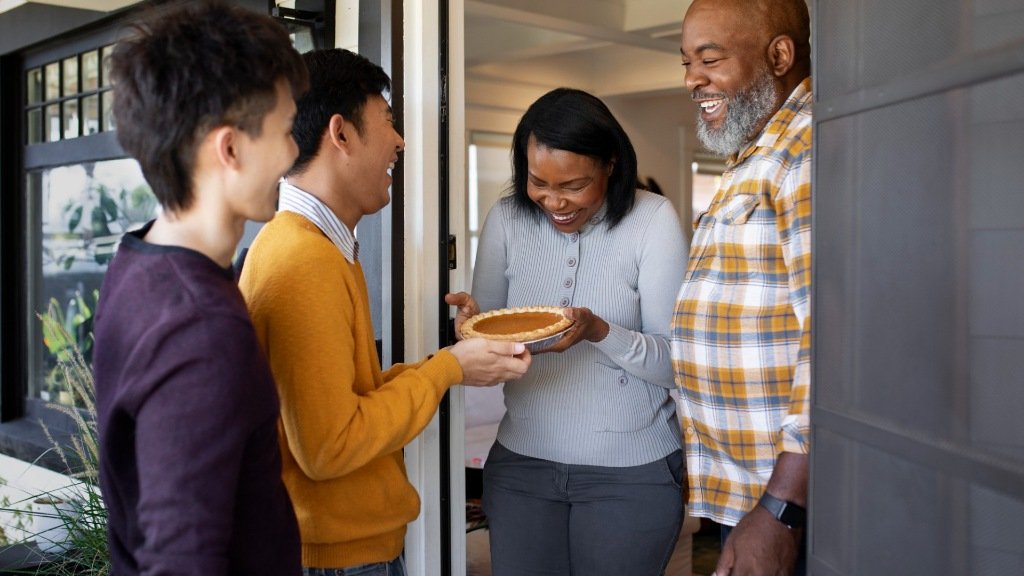9 Vintage Habits That Deserve a Comeback – In a world where convenience reigns supreme—where we can order groceries with a tap, replace worn-out items in minutes, or binge entire TV series without leaving the couch—it’s easy to forget that life wasn’t always this way. Our grandparents and great-grandparents lived through eras of scarcity, like the Great Depression and World War II, when resourcefulness wasn’t just a virtue; it was survival.
Today, as many of us grapple with rising costs, environmental concerns, and the quest for meaningful living, these old-fashioned habits feel surprisingly relevant. Below are nine timeless practices that not only save money but also enrich your life in ways modern conveniences often miss. Let’s take a trip back in time—and perhaps forward—to rediscover what truly matters.
Table of Contents
1. Mending Clothes Instead of Replacing Them
In a world where fast fashion dominates, mending clothes might seem outdated, but it’s a powerful way to save money and reduce waste. Every time you repair a garment instead of tossing it, you extend its life and avoid the cost of buying new ones. Beyond the financial savings, there’s joy in transforming something worn into something cherished—whether it’s darning a sock or sewing on a patch that adds character.
Also Read: 7 Psychological Truths Most People Learn Too Late in Life
To modernize this habit, start small by learning basic stitches or using iron-on patches for quick fixes. For more ambitious projects, online tutorials or local sewing classes can guide you. By embracing mending, you not only cut down on textile waste but also cultivate a deeper appreciation for the things you own, fostering both sustainability and mindfulness.
2. Cooking From Scratch
Cooking from scratch is an old-fashioned habit that saves money while enriching your life. Pre-packaged meals and dining out are convenient but costly, whereas homemade food allows you to control ingredients, portion sizes, and flavors—all while stretching your budget. The act of cooking itself can be meditative and fulfilling, offering a break from the rush of daily life. Plus, sharing a meal you’ve prepared with loved ones strengthens bonds and creates lasting memories.
To integrate this habit, designate one evening a week for batch-cooking staples like soups, casseroles, or stews, freezing portions for busy days ahead. Apps like Mealime or Paprika can simplify recipe planning. In addition to saving money, cooking at home promotes healthier eating and reduces reliance on processed foods, making it a win-win for your wallet and well-being.
3. Growing Your Own Food
Growing your own food may sound daunting, but even small-scale gardening can yield big rewards. A windowsill herb garden or a few pots of tomatoes can supplement your groceries and slash your produce bill. Beyond the financial benefits, gardening brings immense satisfaction—watching seeds sprout and mature connects you to nature and instills a sense of accomplishment.
If outdoor space is limited, try container gardening indoors or explore community gardens in your area. This habit teaches patience, self-reliance, and gratitude while shrinking your carbon footprint. There’s nothing quite like harvesting fresh basil for dinner or plucking a ripe strawberry straight from the plant—it’s a reminder of how rewarding simplicity can be.
4. Borrowing and Sharing With Neighbors

Long before Amazon deliveries and big-box stores, borrowing and sharing were cornerstones of community life. Need a ladder or a power drill? Instead of buying one you’ll rarely use, ask a neighbor. This practice not only saves money but also fosters connection and generosity. Sharing tools, books, or even meals builds trust and strengthens neighborhood ties, creating a network of mutual support.
Modern platforms like Nextdoor or Facebook groups make it easier than ever to connect with neighbors. Consider organizing a tool swap or book exchange to revive this tradition. By embracing sharing, you reduce clutter, minimize waste, and remind yourself that we’re all interconnected—a lesson that feels especially relevant today.
Also Read: 7 Minimalist Rules That Will Simplify Your Life (Without Sacrificing Joy)
5. Repairing Before Replacing
The throwaway culture of modern consumerism has conditioned us to replace broken items rather than fix them, but repairing is a frugal and meaningful alternative. Fixing a leaky faucet, reupholstering a chair, or mending electronics often costs far less than buying new—and it gives you a sense of pride in preserving what you already have.
Thanks to YouTube tutorials and local repair shops, learning basic repair skills is easier than ever. Embracing this habit shifts your mindset from disposability to longevity, teaching you to value craftsmanship and resourcefulness. It’s a small step toward combating overconsumption and honoring the stories behind the objects in your home.
6. Using Everything Up (No Waste)
Our grandparents’ generation lived by the mantra “waste not, want not,” and reviving this habit can save money while reducing environmental impact. From finishing the last bit of shampoo to turning vegetable scraps into broth, using everything up maximizes your purchases and minimizes waste.
Repurposing leftovers sparks creativity—stale bread becomes croutons, citrus peels transform into natural cleaners, and random pantry odds and ends inspire inventive meals. Keep a designated “use-it-up” shelf in your kitchen to stay organized and motivated. This practice encourages mindfulness about consumption and aligns with eco-friendly values, reminding us that abundance lies in using what we already have.
7. DIY Projects Around the House
Hiring professionals for home repairs or decor updates can quickly drain your budget, but tackling DIY projects brings both financial and personal rewards. Whether it’s painting a room, refinishing furniture, or installing shelves, completing these tasks yourself cuts labor costs and gives you a profound sense of accomplishment.
Websites like Pinterest offer endless inspiration for budget-friendly ideas, while YouTube tutorials provide step-by-step guidance for beginners. Beyond saving money, DIY projects allow you to customize your space, reflecting your personality and style. This habit fosters independence, creativity, and an appreciation for handmade beauty, proving that progress doesn’t always require outsourcing.
8. Buying Secondhand
Thrifting isn’t just for vintage enthusiasts—it’s a smart, sustainable way to save money. Thrift stores, garage sales, and online marketplaces offer high-quality items at a fraction of retail prices, from clothing to furniture to kitchenware. Scoring a bargain feels thrilling, and secondhand shopping sparks creativity as you reimagine finds for modern use.
Explore apps like Poshmark, eBay, or Facebook Marketplace for deals, or visit estate sales and consignment shops for higher-end treasures. Buying secondhand keeps usable goods out of landfills, supporting eco-friendly practices and combating overconsumption. It’s a reminder that value isn’t determined by price tags but by utility and meaning.
9. Practicing Gratitude and Contentment
Gratitude might seem intangible, but it’s a habit that can profoundly impact your finances and overall well-being. When you focus on what you already have, you naturally curb impulse spending driven by envy or dissatisfaction. Studies show that practicing gratitude boosts happiness, reduces stress, and improves mental health.
Also Read: 7 Everyday Habits That Quietly Kill Respect (And What to Do Instead)
Start by keeping a gratitude journal, jotting down three things you’re thankful for each day. Reflect on your possessions and identify which ones truly add value to your life. This mindset shift cultivates resilience and shifts your perspective from scarcity to abundance. Gratitude reminds us that true wealth lies not in accumulating more but in appreciating what we already have—a timeless lesson that remains deeply relevant today.
Mike’s Journey Toward Simplicity
Mike, a 30-something software developer, felt overwhelmed by mounting expenses and a cluttered apartment. Inspired by stories of his grandmother’s frugality, he decided to adopt a few old-fashioned habits. He started mending his clothes instead of replacing them, grew herbs on his windowsill, and began cooking hearty soups every Sunday.
To save money on hobbies, he borrowed woodworking tools from a neighbor and joined a local repair café. Over time, Mike noticed profound changes—not only did his bank account grow healthier, but he also felt calmer, more connected to his community, and genuinely proud of his resourcefulness. His journey reminded him that simplicity could coexist with joy.
Conclusion
Blending old-fashioned habits with modern life isn’t about rejecting progress—it’s about reclaiming balance. These practices remind us that true wealth isn’t measured by how much we own but by how intentionally we live. Whether it’s mending a shirt, sharing a meal, or expressing gratitude, each habit carries a lesson: that slowing down and valuing what we already have can lead to greater fulfillment.
So pick one or two habits to try this month. Notice the ripple effects—not just in your finances, but in your heart and mind. After all, sometimes the best way forward is to look back.

